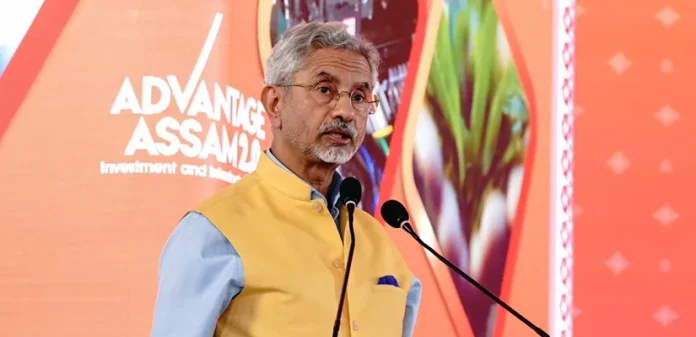GUWAHATI, Feb 26: External Affairs Minister S. Jaishankar revealed that the India-Myanmar-Thailand Trilateral (IMTT) Highway project has been delayed due to the ongoing internal strife in Myanmar.
Speaking at the Advantage Assam Summit in Guwahati, Jaishankar described the highway as a crucial initiative for enhancing India’s engagement with the Association of Southeast Asian Nations (ASEAN). The project, which connects Moreh in Manipur to Mae Sot in Thailand via Myanmar, was initially envisioned as a game changer to boost trade, business, healthcare, education, and tourism between the three nations.
Jaishankar highlighted the progress made under India’s ‘Neighbourhood First’ policy, which has strengthened ties with neighboring countries like Bangladesh, Bhutan, Nepal, and Myanmar. He also pointed out the successful efforts India made during the COVID-19 pandemic, when it shipped vaccines to its neighbors.
“The situation in Myanmar has paused the IMTT Highway project… We cannot allow this [Myanmar unrest] to block something so momentous. Practical solutions will have to be found to ensure the advancement of this initiative,” Jaishankar stated during the session on ‘Act East, Act Fast and Act First.’
The IMTT Highway spans 1,400 kilometers and aims to connect the three countries, but its progress has been hampered by ongoing disruptions in Myanmar. By July 2023, around 70% of the highway’s construction had been completed, but multiple delays have set the project back, and there is currently no clear timeline for completion. Initially, the government had hoped to operationalize the highway by December 2019.
Jaishankar reiterated India’s commitment to regional connectivity and the ‘Neighbourhood First’ policy, mentioning the significant infrastructure developments in the region. “We have seen new roads, checkpoints, rail links, waterways, power grids, fuel pipelines, and transport facilities. There is much more to come in the years ahead,” he said.
While acknowledging challenges, Jaishankar emphasized the importance of full cooperation for regional growth. He also pointed out that Japan and South Korea have become important economic partners for India, with Japan focusing on development projects in India’s Northeast, particularly in mobility and education. Additionally, ASEAN members, including Malaysia and Thailand, have eased visa policies for Indian citizens, creating further opportunities for collaboration in areas such as air connectivity, education, and skill development.

